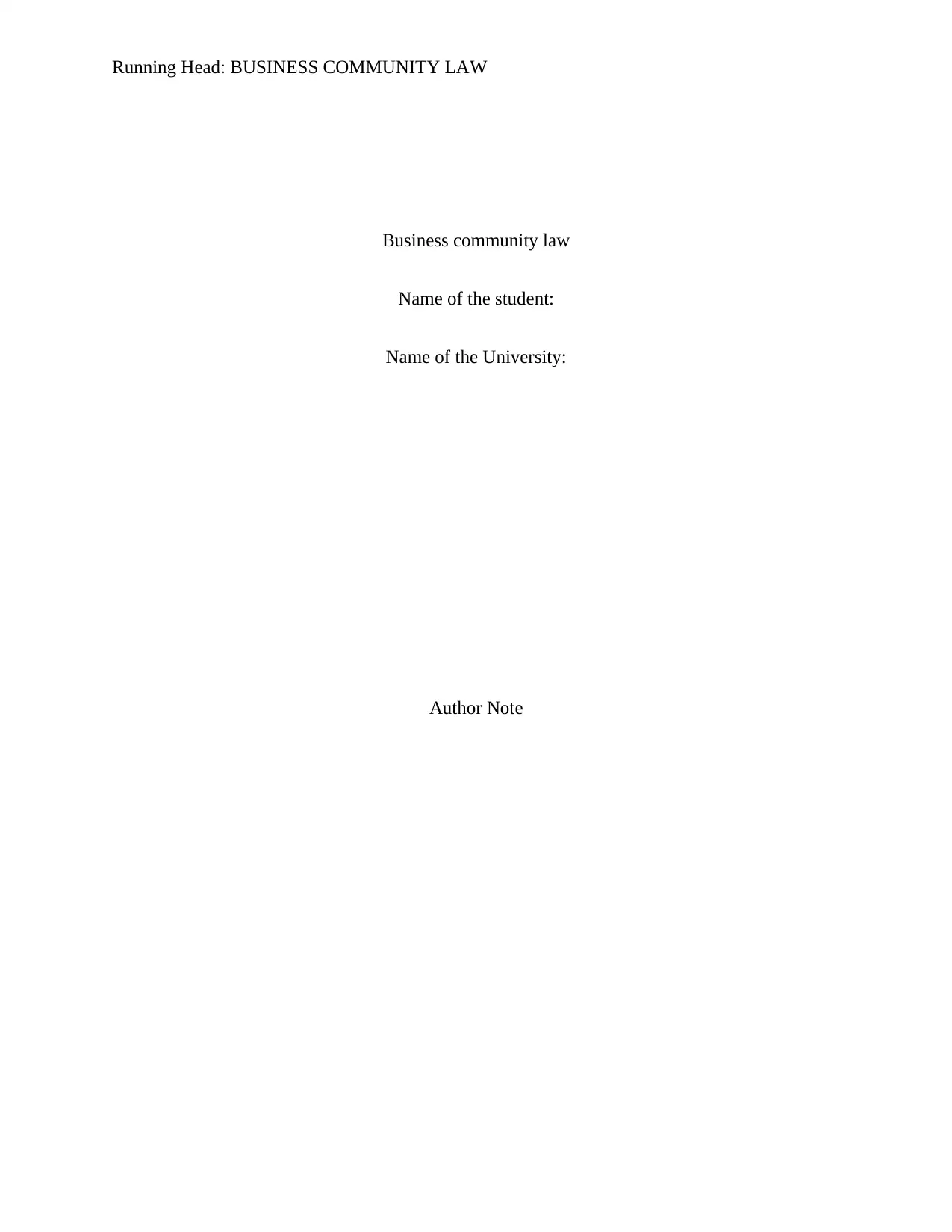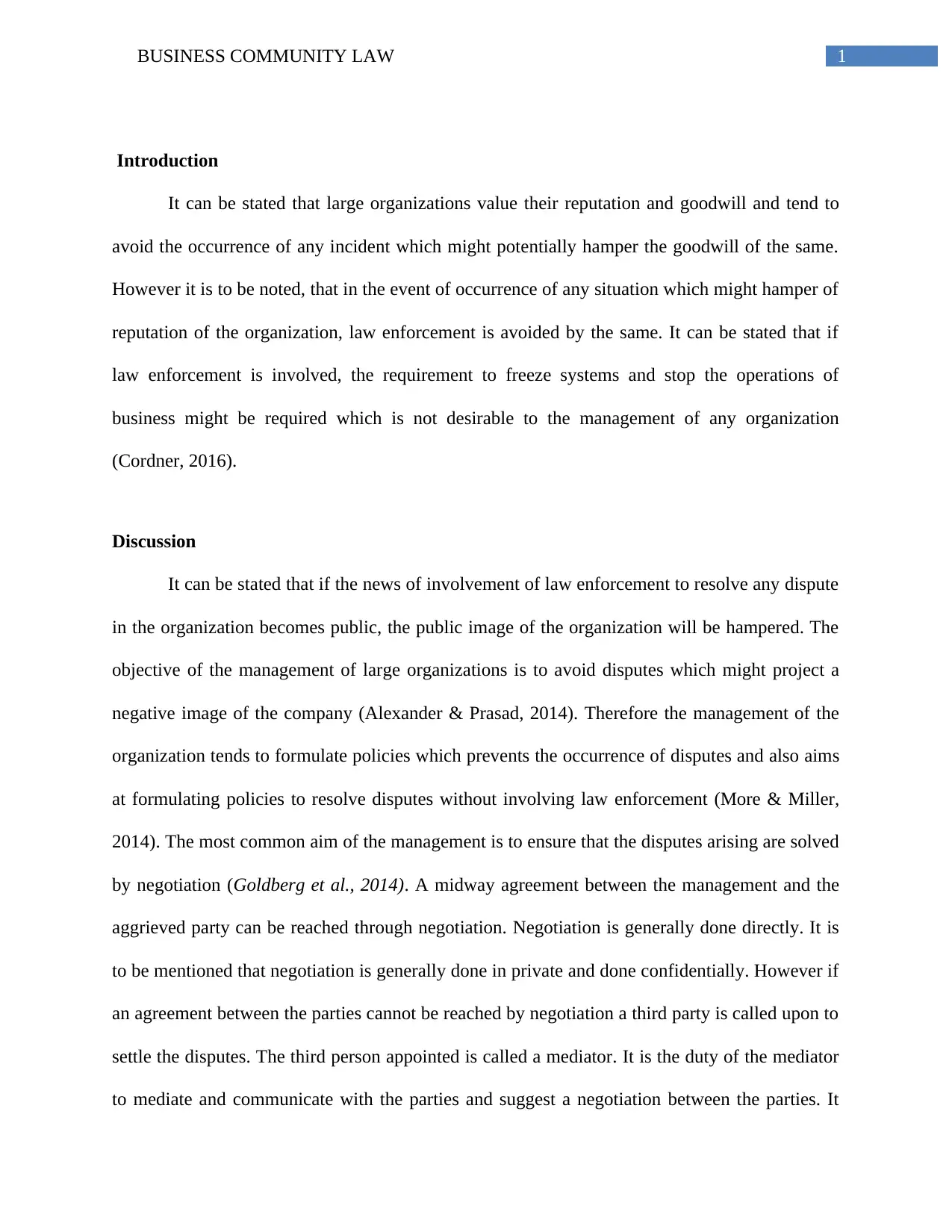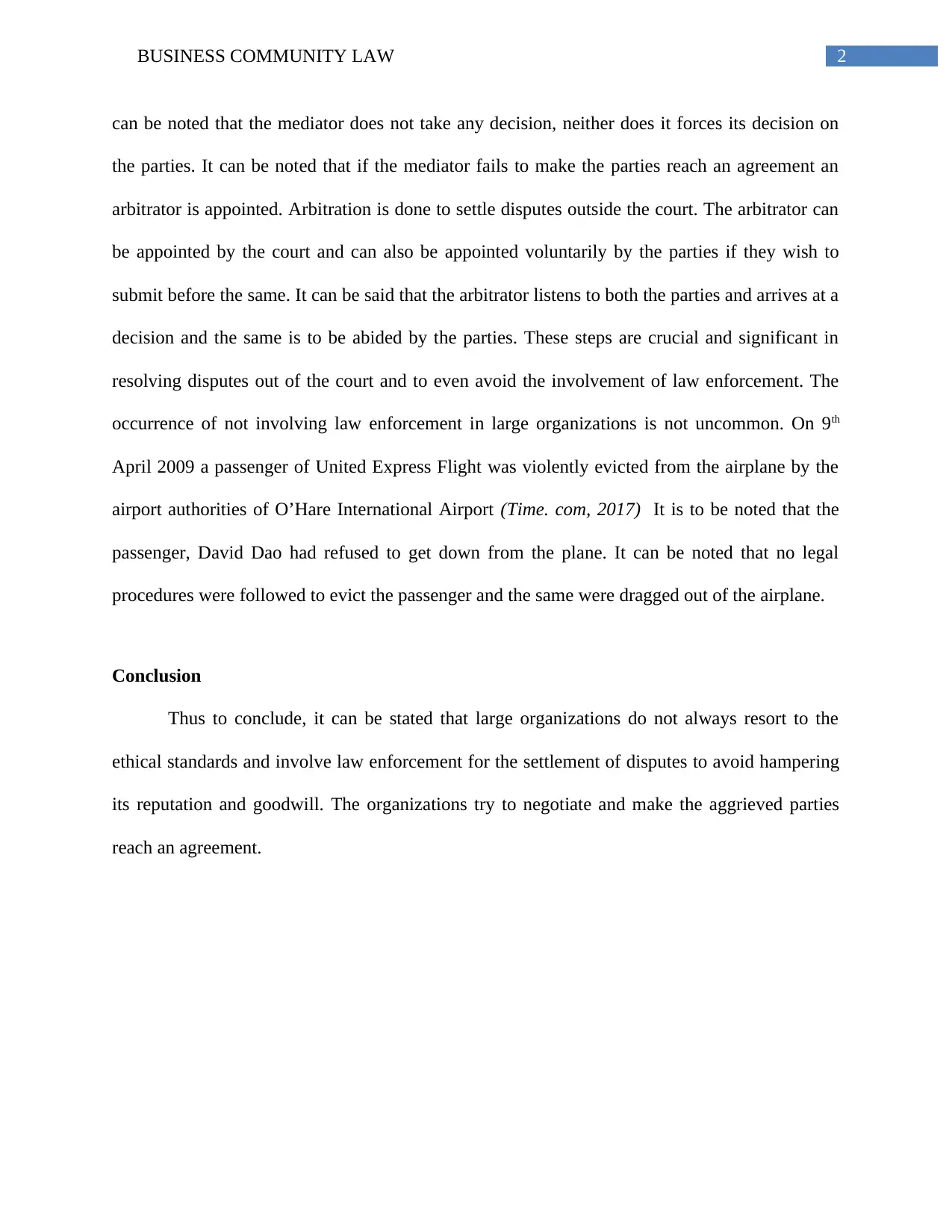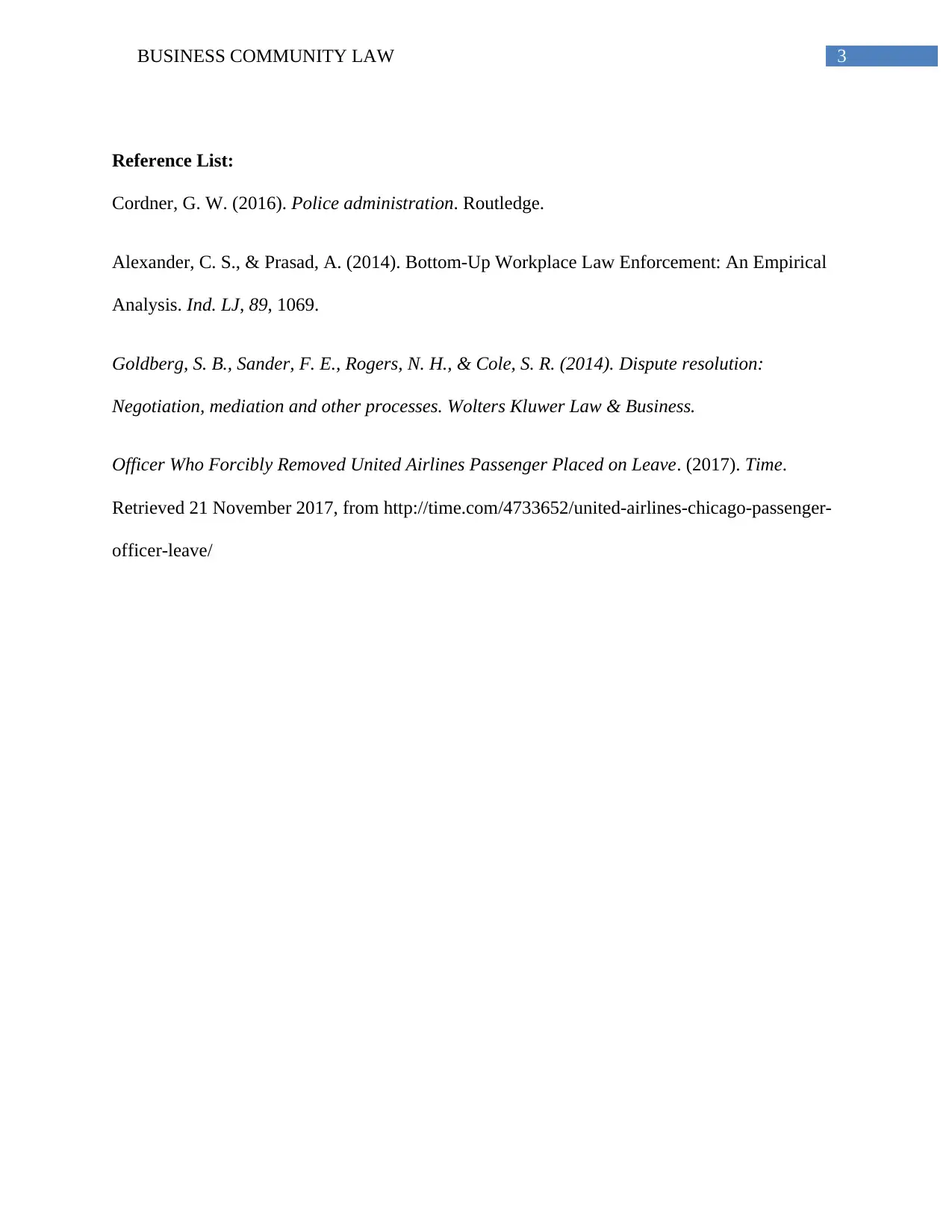Business Community Law Report: Negotiation, Mediation, and Arbitration
VerifiedAdded on 2020/04/13
|4
|736
|38
Report
AI Summary
This report delves into the realm of business community law, focusing on how large organizations manage disputes to protect their reputation and goodwill. The report highlights the preference for avoiding law enforcement due to the potential disruption it can cause. It explores various dispute resolution methods, including negotiation, mediation, and arbitration, as primary strategies to resolve conflicts internally and confidentially. The report emphasizes the importance of these methods in preventing negative public image and maintaining business operations. A case study of a United Express Flight incident is presented to illustrate the consequences of not following proper legal procedures. In conclusion, the report underscores the common practice of businesses prioritizing negotiation and alternative dispute resolution to avoid legal involvement.
1 out of 4











![[object Object]](/_next/static/media/star-bottom.7253800d.svg)